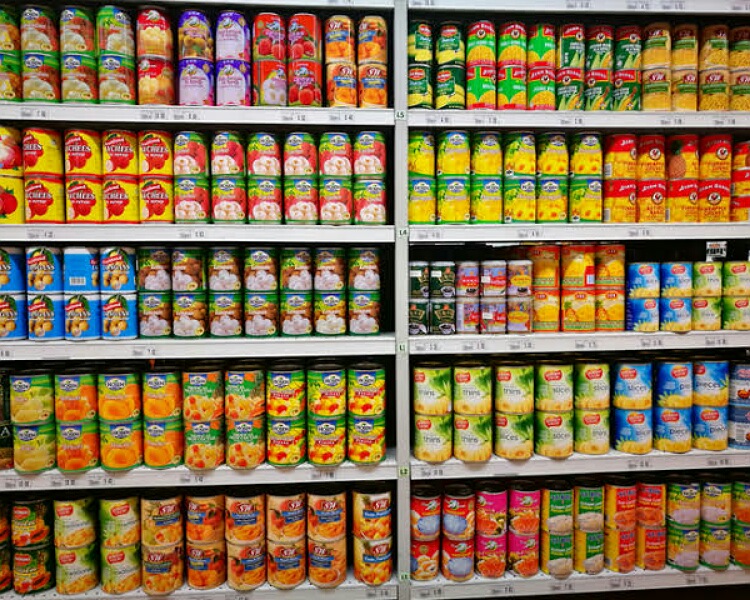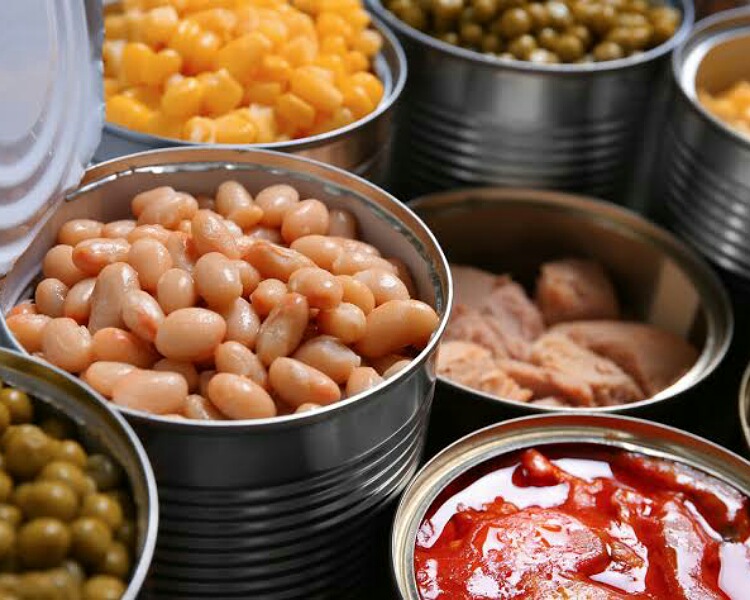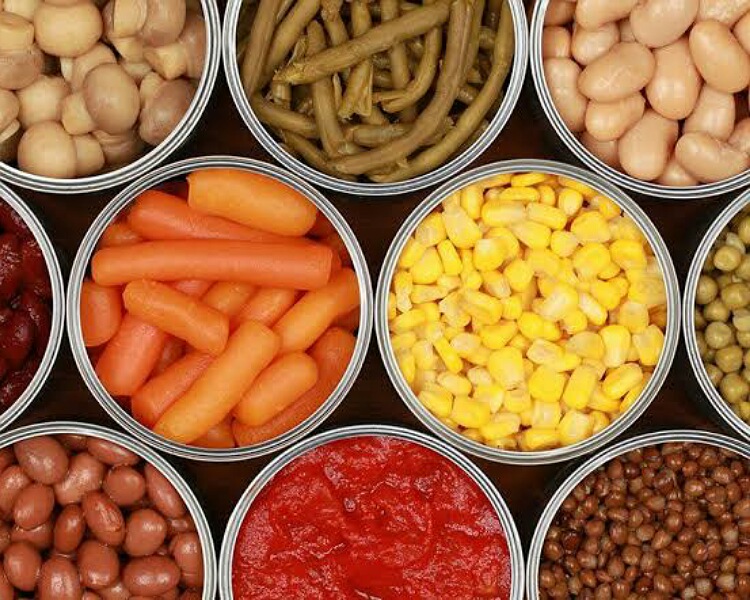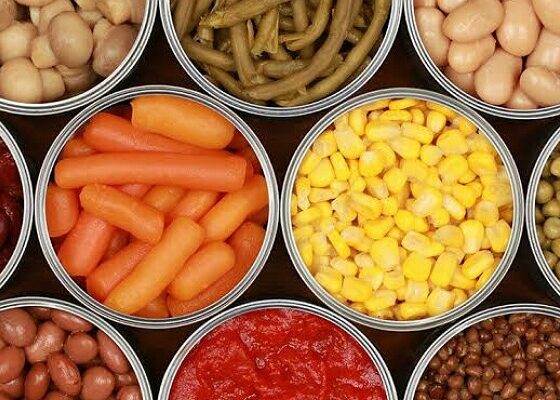Canned foods are foods that come in small cans. These packaged foods are of different types. But there is a concern about their health safety and nutrition levels. Here are the advantages and disadvantages of eating these foods.
Canned foods
Canned foods are not a new concept. They have been around for quite a while. And they are being sold at the grocery shops and supermarkets. They are foods that come packed in glass, steel or tin cans or containers. These foods are processed and preserved to retain their goodness and freshness. In a few hours of picking, these foods are processed, sealed into airtight containers and heated to kill the bacteria and germs.

A lot of variety of foods come packaged in metal or glass cans. These include pickles, fruit cut pieces, vegetables, green leaves, legumes, seafoods, milk and milk products, noodles, pasta, soups, meat chunks etc. But there has always been a concern about the health effects of these foods and their nutritive value. How do these compare with the fresh and frozen foods?
Nutrition and advantages
There has been an understanding that canned foods contain lesser amount of nutrients compared to their fresh or frozen counterparts. But a study carried out in 1997 revealed this to be untrue. It said that canned fruits and vegetables have dietary fiber and vitamins in amounts similar to those found in fresh or frozen fruits and vegetables. And in some cases, the former products had higher nutrients than the latter two products. But certain heat labile vitamins such as C and B could get destroyed due to the heating process involved.
Since they are convenient and easy to handle, people using them tend to consume more fruits and vegetables. Moreover, canning can increase the level of the antioxidant lycopene in the foods. This is healthy.

These foods have a longer shelf life and can reach the remotest area of the world. People can have a varied and rich diet due to them. And these foods remarkably reduce food waste due to spoilage. They also cut down on efforts and time of food preparation.
Some studies have also shown that canning can make the fiber soluble and improve their digestibility. Cooking time is lessened. Moreover, storage and disposal of these foods is simpler and easier.
Disadvantages
Certain of these products contain added sugar. Avoid these and instead opt for those that are in water or natural juices. Also, some of them have added salt. Avoid them too and choose the low salt options. Check the labels properly before purchase. If you have a high salt food in the can, one can drain the salt water and rinse the food in plain water before cooking to reduce the sodium in it.

Despite heating, these foods can contain the spores of the harmful germs such as Clostridium botulinum. This can cause botulism in the user and present as paralysis or even death. Avoid cans that have dents, leaks, cracks or bulges. Additives such as sodium phosphate can cause tissue damage, cardiovascular diseases, kidney impairment, bone loss, and hormonal imbalance.
Read here: Making Easy Pickled Eggs (No Canning Required)
Additionally, BPA is a chemical that lines the inside of cans. These can leech into the food and these can cause heart issues, type 2 diabetes, and male sexual dysfunction. There might, at times, be a metallic taste to the foods in cans.
